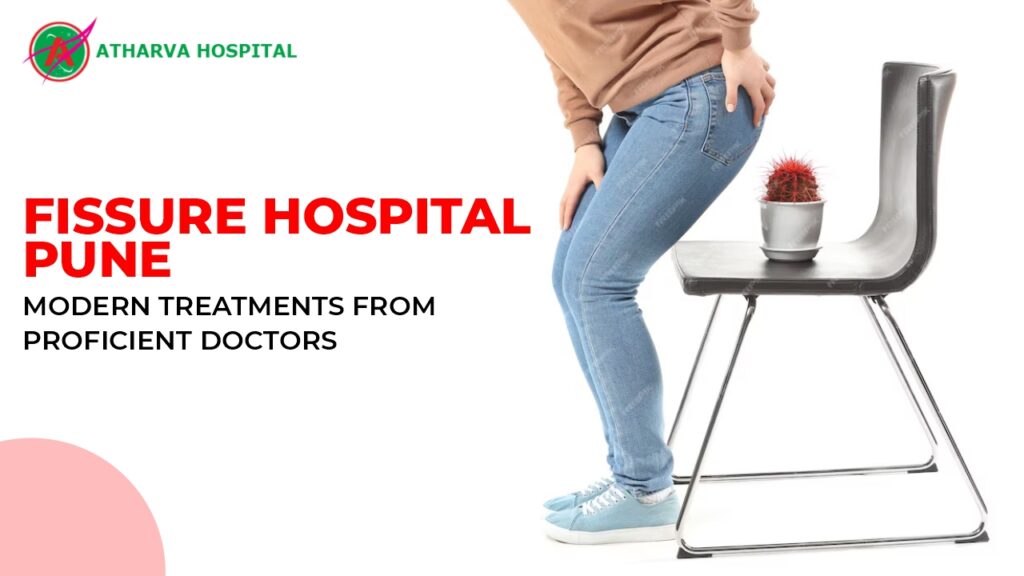Fissure or anal fissure is a common and often painful condition affecting the anal canal. Fissure at any stage is not life-threatening but the symptoms can significantly impact the patient’s quality of life. Understanding the causes may help you avoid this disease. Knowledge of the symptoms and treatments available will help you make proper decisions for fast recovery. The fissure hospital Pune offers the best treatments and required surgeries under the supervision of the most experienced doctors in this domain.
Atharva Hospital in Pune is known for its comprehensive support and best treatment procedure for the disease.
The most obvious reasons for fissure
An anal fissure is a small cut or tears in the anal region. That cut or tear mostly happens in the uppermost lining of the anus. Such cut or tear may happen for any of the below-mentioned reasons:
- Any kind of trauma or injury to the anal canal
- Constipation or passing hard or large stools
- Chronic constipation
- Prolonged diarrhea
- Inflammatory bowel disease like Crohn’s disease
- In women during childbirth
- Anal intercourse
Visiting the fissure hospital Pune will help you understand whether it’s a fissure or any other problem in the anal region that’s causing the pain or occasional bleeding. It’s found that a person with a normal lifestyle mostly faces this physical issue due to prolonged constipation.

Common symptoms of fissure
The most common symptom of fissure is intense pain during bowel movements. If not treated in time, the pain feels like a stabbing pain that persists for a long time after bowel movements. Some other common symptoms that grow with time include –
- Itching and discomfort around the anal area.
- Bleeding during bowel movements.
- Sometimes bleeding even after bowel movements.
- A visible tear that looks like a crack in the skin in the anal area.
Diagnosis of fissure
At Atharva Hospital in Pune, a specialist in this domain will help you find the problem and undertake the necessary treatment procedure.
- At fissure hospital Pune, the doctor attending you will undertake all necessary physical examinations. They will closely examine the anal area to assess the condition of the crack and the probable causes of the problem.
- If necessary, the doctor may ask for some other tests such as anoscopy or sigmoidoscopy. These tests have different purposes. With anoscopy, the doctor will examine the inside part of the anal canal and with sigmoidoscopy, they will examine the whole rectum area and lower colon. This decision will be taken only after the physical examination of the anal area.
- The doctor may ask for some other regular blood and urine tests in case you have any other problems like blood sugar and uric acid etc.
Holistic approach for fissure treatment
Keep in mind that the surgery is the last option in this disease. An experienced doctor at Atharva Hospital will never suggest surgery at the very first visit. They believe in holistic treatment procedure that encompasses lifestyle and dietary changes, medications, initial care at home, and lastly surgery. The fissure hospital pune is well-equipped with modern facilities and doctors there are updated on modern treatment procedures for fissure, piles, fistula, and other treatments.
- The patients are advised of certain dietary changes to ease bowel movements. They suggest adding more nutritious food with more fiber, vitamins, and minerals. They also suggest a controlled intake of sweets and spicy food items.
- The doctors also ask to take more water and fruits to stay hydrated.
- If necessary, they prescribe certain medications to reduce the pain and bleeding during bowel movement.
- If the patient undergoes surgery, the doctor visiting the patient and the whole support system of the hospital provide post-surgical as necessary.
